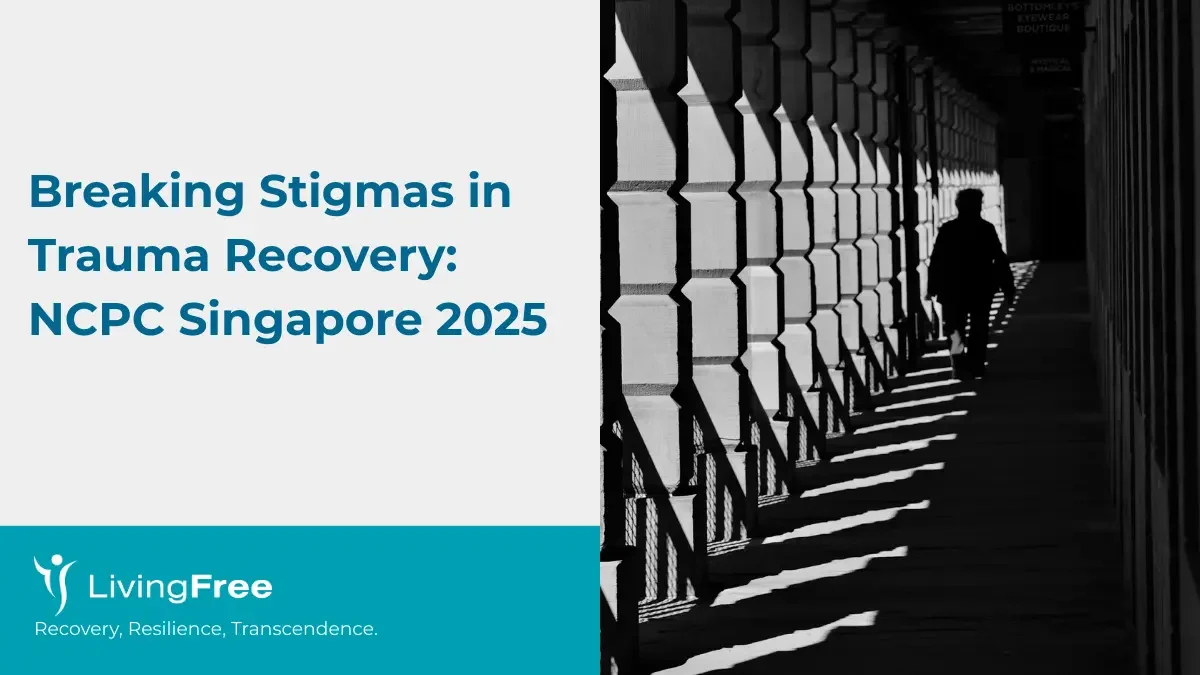The way we understand trauma is evolving. Once treated as a condition best silenced or avoided, trauma is now recognized as a psychological wound that requires active recovery. National Counselling & Psychotherapy Conference (NCPC) Singapore 2025, held on 7 October 2025 at One Farrer Hotel, captures this shift under the theme “Breaking Stigmas, Transforming Growth.”
Understanding Trauma: Six Domains
Drawing from decades of research and clinical practice, trauma can often be identified through six interconnected domains of symptoms:
- Event: The original experience, whether “Big T” trauma (life-threatening) or “Small T” trauma (psychological wounds such as neglect), often unprocessed or unresolved.
- Avoidance: Attempts to numb or suppress painful memories, sometimes expressed through workaholism, isolation, or addictions.
- Arousal (Hyperarousal): A state of constant alertness or tension, linked to an overactivated sympathetic nervous system, manifesting as anxiety, panic, or insomnia.
- Intrusion: Flashbacks, nightmares, or intrusive thoughts that replay the traumatic experience.
- Negative Cognitions: Deeply held beliefs of self-blame, hopelessness, or distrust that shape identity and relationships (“I am unlovable,” “The world is unsafe”).
- Somatoform Symptoms: Physical expressions of trauma such as chronic pain, fatigue, or gut problems, that are often overlooked.
These domains demonstrate why trauma cannot be reduced to a single symptom. They overlap, reinforce one another, and must be addressed holistically in therapy.
Read more: Are You Experiencing Hyperarousal?
From Avoidance to Resilience
At NCPC Singapore 2025, Dr Reshie Joseph, Founder and Clinical Director of Living Free, will deliver his keynote:
“Unlocking Trauma: A Diathesis-Stress Model for Resilience and Recovery.”
His presentation emphasizes that recovery does not come from eliminating triggers — an impossible task — but from building resilience within these six domains. This approach is grounded in the diathesis-stress model, which recognizes that while individuals may have vulnerabilities, they also have the capacity to adapt and grow.
By addressing both the neurobiology (autonomic nervous system, HPA axis regulation) and the psychology (belief systems, coping behaviours), his model creates a manualised framework that therapists can use to guide recovery systematically.
Read more: Avoidance in PTSD: A Hidden Cycle of Coping and Harm
Why This Matters to Practitioners and Survivors
For psychotherapists, the six-domain model provides:
- A diagnostic lens for understanding complex trauma presentations.
- A structured pathway for therapy sessions.
- Language to communicate trauma responses in ways clients can understand.
For trauma survivors, it offers:
- A roadmap of recovery, breaking down the overwhelming process into manageable steps.
- Validation that symptoms are not character flaws but adaptive responses to past wounds.
- Hope that healing is possible by working systematically through each domain.
NCPC Singapore 2025: A Premier Platform for Mental Health Innovation
The National Counselling & Psychotherapy Conference Singapore 2025 is more than just a gathering of counsellors and psychotherapists — it is a forum for advancing new clinical frameworks that reshape practice across Asia.
With 14+ international speakers, 8+ expert sessions, and more than 300 participants, the event is set to highlight fresh approaches to long-standing challenges in trauma treatment under the theme “Breaking Stigmas, Transforming Growth.”
By contributing his keynote, Dr Reshie Joseph positions Living Free at the heart of this movement, sharing tools and perspectives that can impact both practitioners and trauma survivors worldwide.
Read more: Unlocking Trauma: Reshie Joseph’s Diathesis-Stress Model at NCPC Singapore 2025
Looking Ahead
As the conversation around trauma evolves, NCPC Singapore 2025 stands as a milestone in bridging research, clinical practice, and lived experience. Through his keynote, Dr Reshie Joseph will highlight a path forward: one where trauma recovery is no longer about avoidance, but about resilience, growth, and the reclaiming of life.
Read more: Reshie Joseph to Present New Trauma Recovery Model at NCPC 2025


